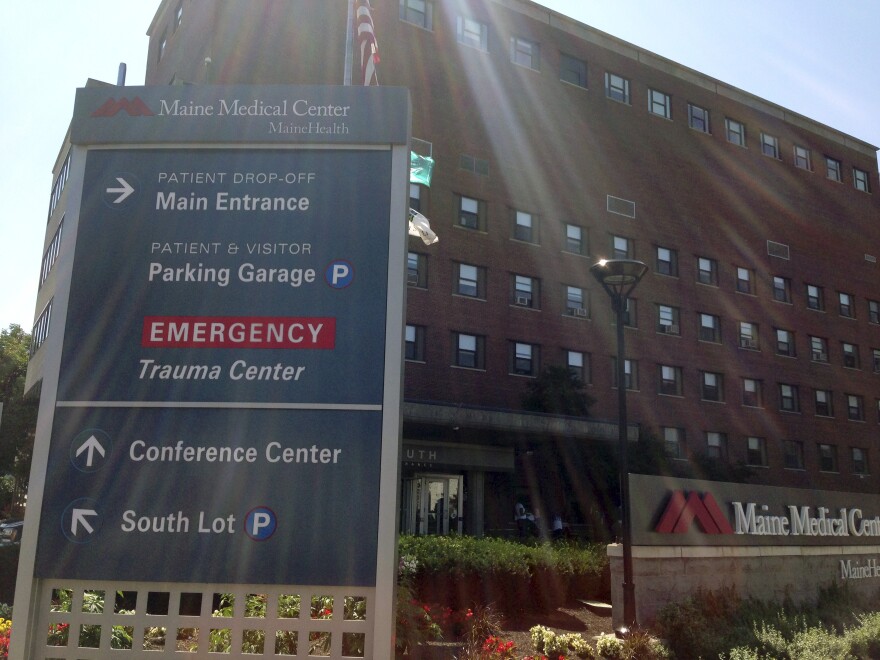The tight labor market is not just affecting hospitality and retail in Maine — it's affecting hospitals too.
On Wednesday, MaineHealth announced that it will set a system-wide minimum wage increase of $17 an hour, up from $14. It's also adjusting the pay scale for 18,000 positions by at least 2%. MaineHealth officials say these adjustments — which don't apply to physicians or executives — are necessary to stay competitive.
The two other largest health systems in the state have also recently increased pay as they feel the workforce pinch.
MaineHealth's boost in pay will take effect in August and will cost the health system $61 million a year. CEO Andrew Mueller says it's a necessary investment to attract workers in what he describes as a fiercely competitive labor market.
"We are all facing workforce challenges that are plaguing our region, our state, and certainly the health care industry."
Workforce challenges aren't new to health care, but they've been exacerbated by the pandemic. Some people are reticent to work in health care, Mueller says, and some employees have left because they're burnt out. The number of job openings at MaineHealth typically fluctuates, but for the past several months it's consistently stayed above 2,000.
It's a situation that other health systems in the state are grappling with. Northern Light Health is looking to fill 1,600 positions. That's about 400 more than usual, says Catharine MacLaren, vice president of talent and diversity.
"One of my hypotheses about that is quite a few people have left or perhaps not entered the workforce, either because they're taking care of children or maybe there's some hesitancy to enter the workforce," MacLaren says.
To attract workers, MacLaren says Northern Light recently boosted its starting pay by about $2, to $15 an hour.
"Wages were going up across the state. That's clear. That's what's happened, so we didn't want to be behind the curve on that," she says.
Because hospitals aren't just competing with each other for workers — they're also competing with the retail and hospitality industries, says Michele Talka, chief human resources officer for Central Maine Healthcare.
"We're all fishing out of the same shrinking pond," she says.
Talka says in recent months, the number of open positions at Central Maine Healthcare has swelled from the typical 300 or 400 to more than 500. To attract and retain workers, CMHC has boosted pay for certain positions. First, it was CNA's in February. This month, the organization increased pay for service positions such as medical assistants from $13 to $15 an hour, to $16 to $18.
"We're working really hard to bridge this gap. I mean we've put in incentives, sign on bonuses, really promoting the growth opportunities. But it's still hard," Talka says.
All three health systems are also embracing remote work to tap into potential new applicants. It's also a way to get around another complicating factor — the skyrocketing cost of housing. MaineHealth CEO Andrew Mueller says the issue is not unique to Portland.
"There is no doubt that housing has impacted our ability to ultimately hire individuals. We recently had a number of travelers we were hoping to bring in to augment our team, have to tell us 'no, we can't come,' simply because they couldn't find a place to stay," Mueller says.
As the pay for hospital workers increases to overcome these challenges, the question is whether the cost of care will too. Health system officals say they have no plans to increase costs and are finding savings elsewhere in their systems.



